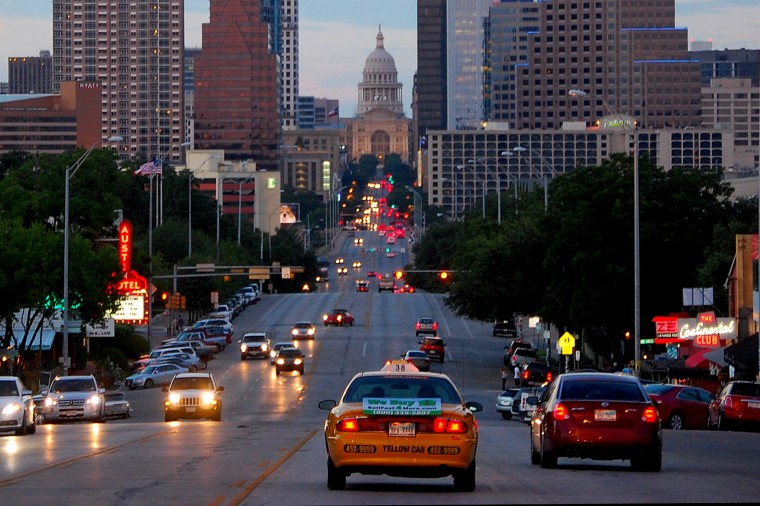Excessive speed traps distract officers, intimidate drivers
In a report that shouldn’t surprise any Austin driver, our city placed second on CNBC’s list of the ten worst cities for speed traps. While it lost to Houston for the most nefarious honor, our fair town is still one of the most risky places for those who don’t keep a constant eye on the speedometer.
Ask any Austinite you know and chances are good that the Austin Police Department has pulled them over for speeding at least once. Their tactics are ruthless and sometimes overwhelming. For instance, when I was pulled over last summer just past the northbound overpass of I-35, a motorcycle cop with his laser beam of justice (lasers are more difficult to detect) and two squad cars were there to book anyone unfortunate enough to be caught in the crosshairs. This was 8 a.m. on a Friday. Since then I’ve had an unshakable fear of that stretch of road, and I always make sure not to go a hair over 55 mph in anticipation of those officers who follow speed limits like the word of the Bible.
Speedtrap.org has similar stories from others who have felt the wrath of local law enforcement. It also serves as a forum for drivers to see where they’re likely to be targeted. Users discuss when and where cops scope out their prey, some of the most popular being abandoned parking lots or as you come to the top of a hill. They’ve even seen some cops hiding at the ends of school zones, where they can ticket drivers for accelerating to the speed limit posted ahead. With all of these potential speed traps, it’s no wonder that Austin has a traffic problem.
Tickets bring in huge streams of revenue all across the country. The National Motorists Association estimates that ticketing is a multi-billion dollar industry, although no figures exist because most police departments never make their ticketing information public. Insurance companies also benefit, as the surcharges for a ticket on your record line their pockets with even more of your money. In other words, trapping unsuspecting motorists in the name of “safety” is good business, and if striking fear into the hearts of drivers is what it takes, so be it. Controversy about whether police departments require ticket quotas — a set number of tickets that officers must meet every month — only makes the whole ticketing business seem more open to dishonesty. At least APD is a shining example of ticket-writing effectiveness.
While Austin is one of the safer cities in Texas, our officers should be doing better things on taxpayer dime than sitting in highway shoulders and Jack in the Box parking lots. Ultimately, excessive ticketing detracts from the primary obligations of the police and fosters distrust in them. If we are to feel truly safe on the road, our looming fear of flashing lights needs to end.







